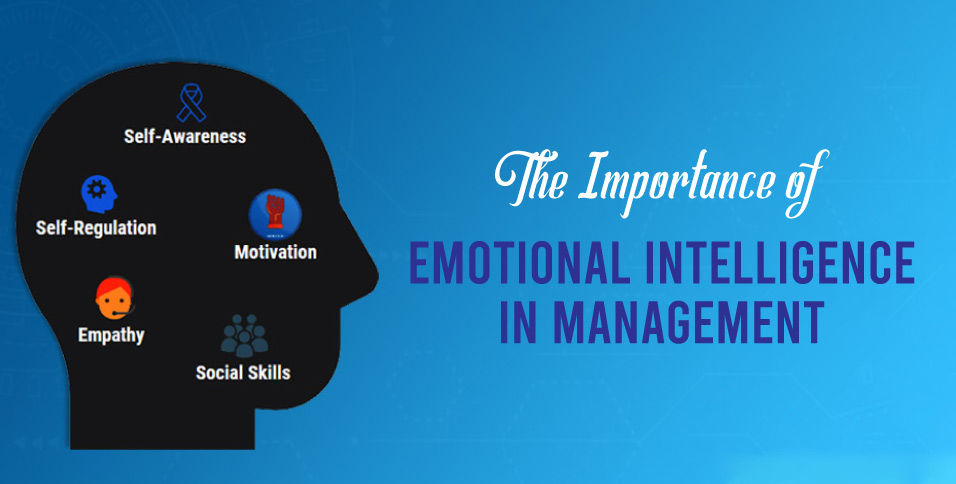In the ever-evolving corporate landscape, the role of a manager has become more intricate than ever before. Gone are the days when managers were expected to oversee processes and ensure productivity merely. In the modern world, effective management encompasses many skills, with emotional intelligence taking center stage. This article explores the significance of emotional intelligence in the context of a general management course, shedding light on how this crucial aspect can be the key to unlocking success for aspiring managers.
As businesses grapple with the challenges of globalization, technology integration, and a diverse workforce, the demand for emotionally intelligent leaders has surged. In response, general management courses have recognized the paramount importance of instilling emotional intelligence within their curricula. Before delving into its significance, let us first understand what emotional intelligence truly entails.
Understanding Emotional Intelligence
Emotional intelligence, often referred to as EQ, is the ability to recognize, understand, and manage emotions, both in oneself and others. It encompasses a set of skills that facilitate effective interpersonal communication, empathy, self-awareness, and emotional regulation. Daniel Goleman, a renowned psychologist, introduced the concept of emotional intelligence, propelling it into the limelight of modern management practices.
In the context of general management courses, emotional intelligence is now regarded as an indispensable skill set that can differentiate great managers from average ones. Managers possessing high emotional intelligence can navigate complex interpersonal dynamics, foster collaborative work environments, and inspire their teams to perform at their best.
The Significance of Emotional Intelligence in Management
- Enhanced Communication and Conflict Resolution In the fast-paced business world, managers interact with diverse stakeholders daily. Effective communication is pivotal for conveying ideas, addressing concerns, and fostering a harmonious work environment. High emotional intelligence equips managers with the ability to grasp non-verbal cues, understand underlying emotions, and tailor their communication to suit the emotional needs of their team members. This skill promotes trust and transparency and reduces misunderstandings, leading to smoother conflict resolution.
- Empathy and Team Building A cornerstone of effective leadership is the ability to empathize with team members. Emotionally intelligent managers can put themselves in their employees’ shoes, comprehending their struggles, aspirations, and concerns. This empathy facilitates the creation of strong bonds within teams, encouraging a sense of belonging and loyalty. As a result, employees feel valued and motivated, leading to higher levels of engagement and productivity.
- Stress Management and Resilience The corporate world can be taxing, with managers often facing high-pressure situations. Emotionally intelligent leaders can handle stress adeptly, exhibiting resilience in the face of adversity. They remain composed, making well-informed decisions even under challenging circumstances. Their ability to manage stress inspires confidence in their team, instilling a sense of stability and assurance.
- Adaptability and Change Management Change is inevitable in any organization, and successful managers need to navigate these transformations with finesse. Emotional intelligence allows managers to adapt to new situations and be receptive to change. This adaptability enables them to lead their teams through transitional periods, fostering a culture of resilience and openness to innovation.
- Conflict Transformation and Employee Engagement Conflicts are a natural part of any workplace, but emotionally intelligent managers approach conflicts as opportunities for growth and understanding. They transform conflicts into constructive conversations, seeking win-win solutions and preserving valuable relationships. This approach boosts employee morale, job satisfaction, and overall engagement.
Conclusion
In conclusion, emotional intelligence is a fundamental aspect of successful management in today’s dynamic business environment. General management courses that prioritize the development of emotional intelligence are better equipped to produce managers who excel in their roles, lead with empathy, and drive their teams to new heights of success.
Aspiring managers should recognize the transformative potential of emotional intelligence and actively seek opportunities to cultivate these essential skills. By doing so, they can embark on a path to becoming exceptional leaders, capable of steering organizations through challenges and propelling them towards a prosperous future. Embracing emotional intelligence is the gateway to unlocking a world of possibilities in the realm of general management courses and beyond.
Also Read: Mirella Hansen: Transforming Business through Emotional Intelligence















